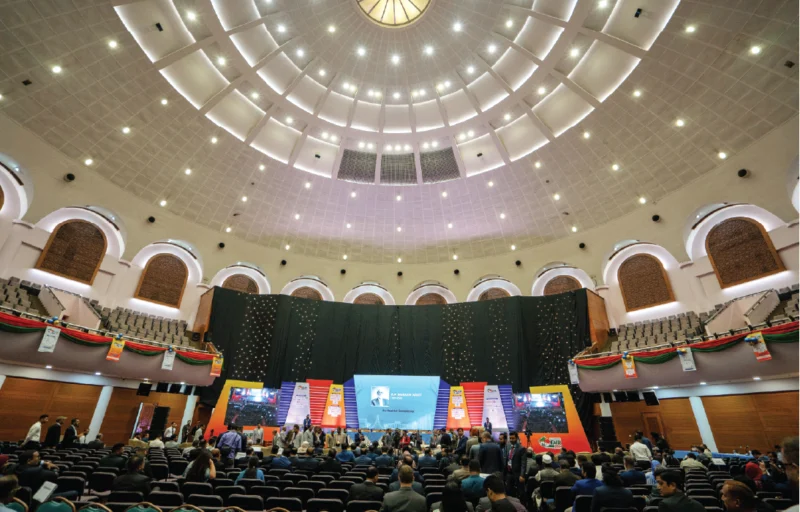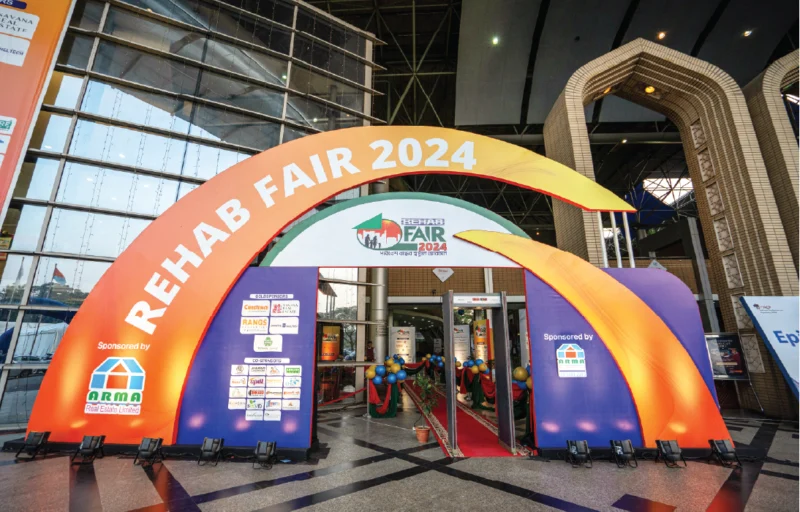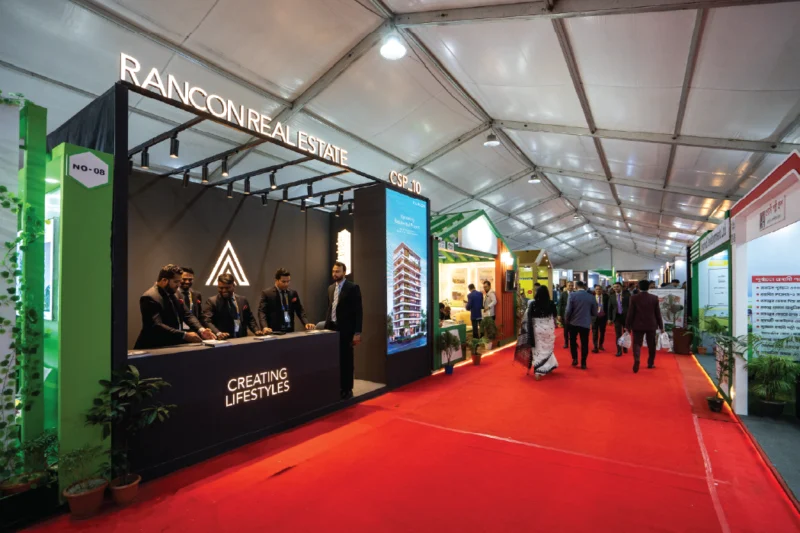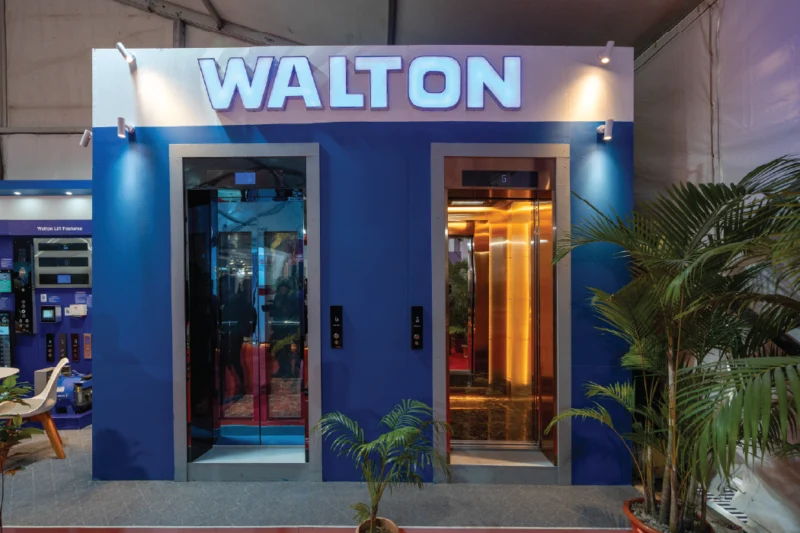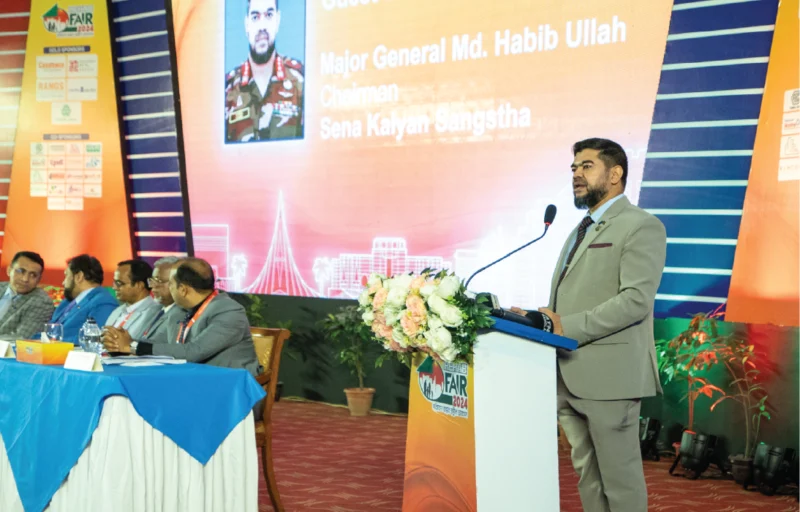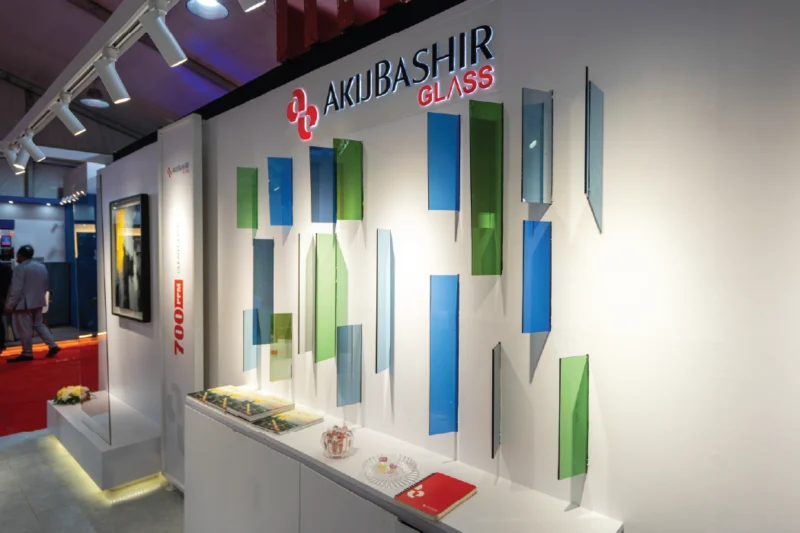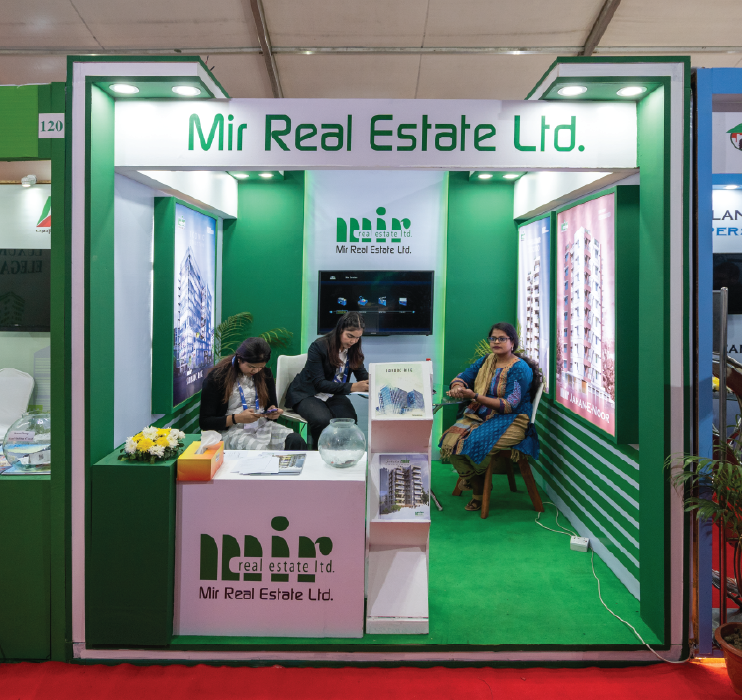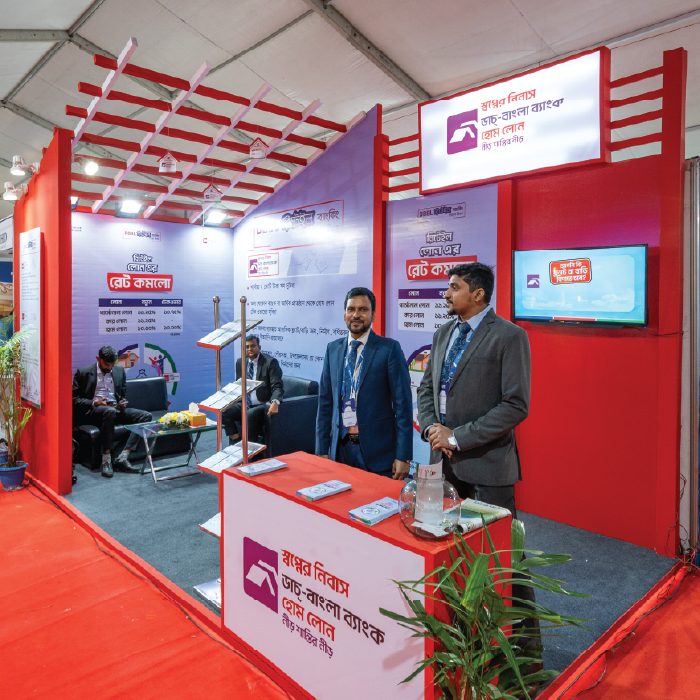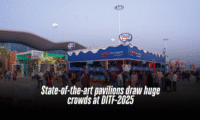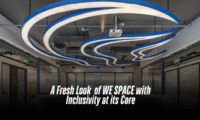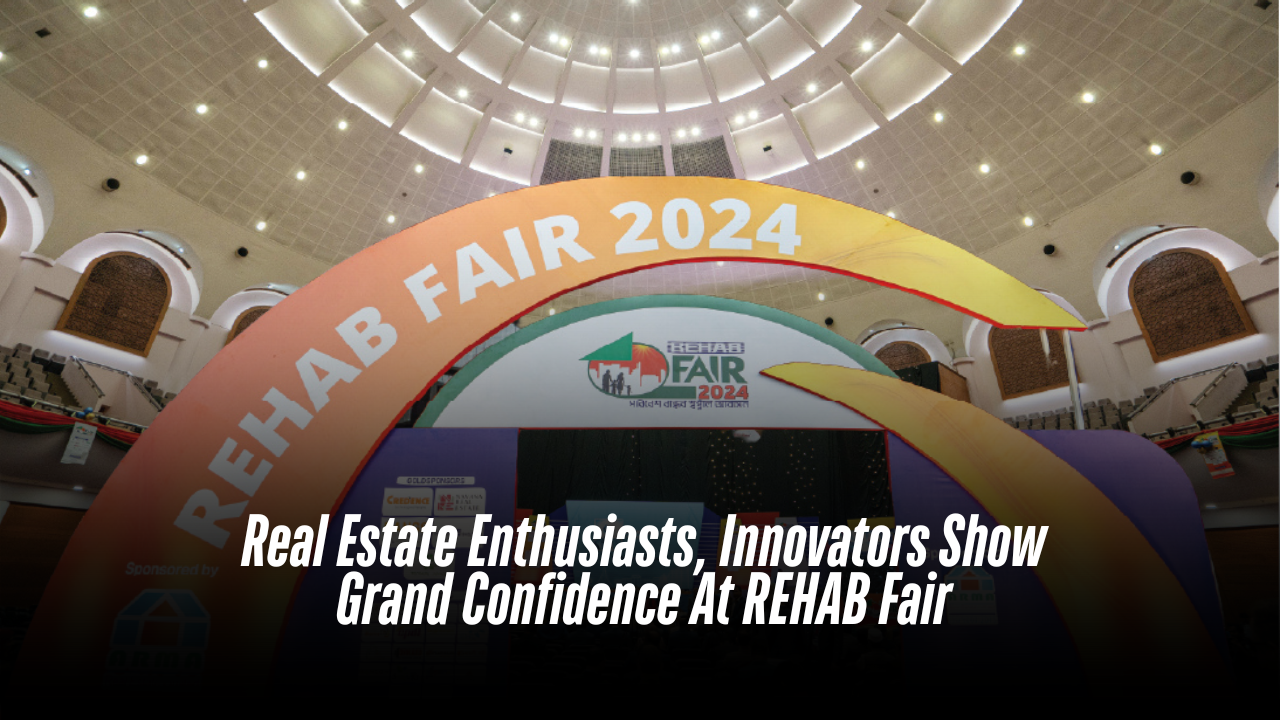
The Real Estate and Housing Association of Bangladesh (REHAB) organised a five-day REHAB Fair-2024 at Bangabandhu International Conference Centre (BICC) in Dhaka, to bring together all stakeholders related to the real estate sector, including land developers, house builders, buyers, financial institutions, building materials companies, and ceramic companies. The fair concluded on December 27 with an overwhelming response from visitors and prospective buyers. It witnessed significant engagement with real estate enthusiasts and industry stakeholders. RAJUK Chairman Siddiqur Rahman Sarker inaugurated the fair on December 23.

The event attracted about 18,000 visitors and buyers, showcasing its popularity among Dhaka residents and highlighting the strong interest in the real estate sector. REHAB leaders expressed satisfaction, stating that the event successfully met its objectives of promoting the housing sector and engaging the public. According to REHAB data, the fair saw flats, plots, and commercial spaces worth Tk 403 crore being sold and booked. Of the total amount, flats accounted for Tk 230 crore, plots Tk 96 crore, and commercial spaces Tk 77 crore. Additionally, bank loan commitments worth approximately Tk 1,090 crore were received for new projects.
Sheltech’s Deputy General Manager (Sales) AKM Rafiul Islam highlighted the importance of the fair in showcasing their 50 new projects to customers. He emphasised that such fairs provide an opportunity to communicate with both new and existing clients. “Many clients come here and purchase their desired products after comparing with other companies. We received good customers at the fair,” he observed.
Similarly, Mir Real Estate Ltd’s Head of Marketing and Sales, Md Abu Zahid, noted that the fair allowed them to introduce seven new projects to customers. He pointed out the challenges faced by the real estate sector due to the increased cost of doing business and the rising prices of construction materials. Mr Zahid called for government policy support to help the sector thrive.
Ceramics : A New Phenomena in Real Estate
The ceramic sector is a new phenomenon in real estate. The fair highlighted the growing importance of ceramics in the real estate sector. REHAB President Md Wahiduzzaman stated that the organisation has been arranging the fair for the past 26 years with the goal of bringing all stakeholders, including realtors, developers, buyers, financial institutions, building materials companies, and ceramic companies, under one platform for the industry’s development. He explained that ceramics play a crucial role in the finishing segment of construction, accounting for 60 per cent of a building’s finishing part. Because a building has two segments: 40 per cent construction and 60 per cent finishing. Ceramic is part of the finishing segment. Thus, the prices of apartments depend on the finishing aspect. The fair provided an excellent opportunity for ceramic companies to showcase their products and for buyers to choose their desired items.
“I use ceramic tiles in my projects, and thanks to the tile companies, we can finish building works smoothly,” Mr Wahiduzzaman mentioned. In response to a query, he mentioned that realtors seek quality products with good finishing and well-burnt tiles. “I prefer homogeneous tiles, but I have to change them due to client demands,” he said. Buyers looking to purchase plots and apartments can choose their desired properties by visiting different companies’ stalls at the fair. They can also examine products’ quality and legal issues. REHAB assists buyers, as only REHAB members can participate in the fair.
Mr Wahiduzzaman also addressed the challenges faced by the real estate sector, including high registration costs, VAT, and taxes, as well as reduced ADP project implementation in the real estate sector due to the economic slowdown. He expressed optimism about the industry’s recovery by 2025 with proper government policy support. “We are working to fulfill the dreams of the citizens,” he stated.
However, in the post-Covid-19 period, the business has faced a sluggish situation. Such fairs help grow business and trade. The demand for both tiles and sanitaryware is increasing significantly in the country. “But gas is crucial to ensure quality ceramic products. I planned to manufacture ceramic items but reconsidered due to the gas supply crisis,” he explained

Hints at Ceramic Industry’s Growth
The Chairman of the REHAB Fair-2024 Committee, Mohammad Akter Biswas said that more than 200 related industries, including rod, cement, tiles, and electrical equipment, and approximately three crore people are directly and indirectly linked to the sector, which accounts for 12%-15% of the GDP. “Various construction materials such as tiles and financial institutions participated in the expo. Buyers have the opportunity to choose their apartments after discussing with many companies at the fair,” he added.
The growth of the ceramic industry was also highlighted, as several tiles and sanitary companies have started manufacturing high-quality ceramic products that meet international standards and are exported to different countries. Earlier, imported products were commonly used, but now the ceramic industry has become significant in Bangladesh. He underscored the importance of the REHAB Fair in bringing all buyers and sellers under one umbrella, allowing them to explore various construction materials and financial solutions.
The REHAB Fair-2024 was a resounding success, bringing together a diverse range of stakeholders and facilitating significant transactions and commitments. The event highlighted the growing importance of innovation and sustainability in the real estate sector, with a particular focus on the role of ceramics. As the industry continues to evolve, the REHAB Fair remains a crucial platform for promoting growth, fostering collaboration, and addressing the challenges and opportunities faced by the sector.



